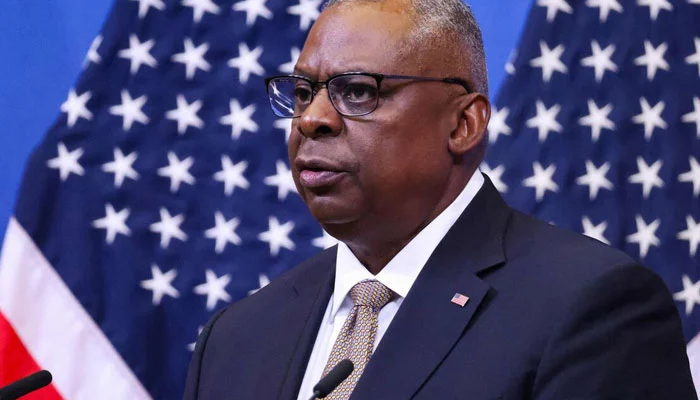US Defense Secretary Lloyd Austin was admitted to Walter Reed National Military Medical Center after developing a urinary tract infection following surgery in December to treat prostate cancer.
The revelation of his hospitalization only recently came to light and sparked widespread criticism of the Pentagon’s secrecy of the situation, with even President Joe Biden and Rep. Austin not being informed for several days.
Austin, 70, a key figure in the US military hierarchy, is making a positive recovery despite complications from prostate cancer treatment on December 22, according to the hospital. These complications included severe abdominal, hip, and leg pain along with persistent nausea. After being diagnosed with a urinary tract infection, Austin was transferred to the intensive care unit on January 2nd.
Hospital statement, signed by Dr. John Maddox and Dr. by Gregory Chesnut, details that further tests revealed a build-up of abdominal fluids restricting his bowel function, requiring a nasogastric tube to relieve gastric drainage. Despite the challenges, the medical team at Walter Reed remains optimistic about Austin’s recovery, stressing that the infection has cleared up, though cautioning that the process may be gradual.
Also read: US battles unprecedented weather havoc from tornadoes to blizzards
Austin’s hospitalization presents challenges due to the nature of his duties, which require immediate availability to address national security emergencies. His need to be constantly available for secure communication in the event of an emergency, such as a potential nuclear threat, presents logistical obstacles when he is confined to a hospital bed.
Amid the uproar over the delayed unveiling, President Biden faced backlash. Questions have been raised about the Pentagon’s failure to inform him of Austin’s initial treatment in December, which was described as an elective procedure, raising concerns about the prostate cancer treatment being classified as elective.
Calls for Austin’s removal from office have been repeated by some Republicans, including former President Donald Trump, yet both the Pentagon and the White House have reiterated that Austin remains secretary of defense.
Amid this evolving situation, Air Force Maj. Gen. Patrick Ryder emphasized Austin’s commitment to recovery while remaining steadfast in his duties as Secretary of Defense.







